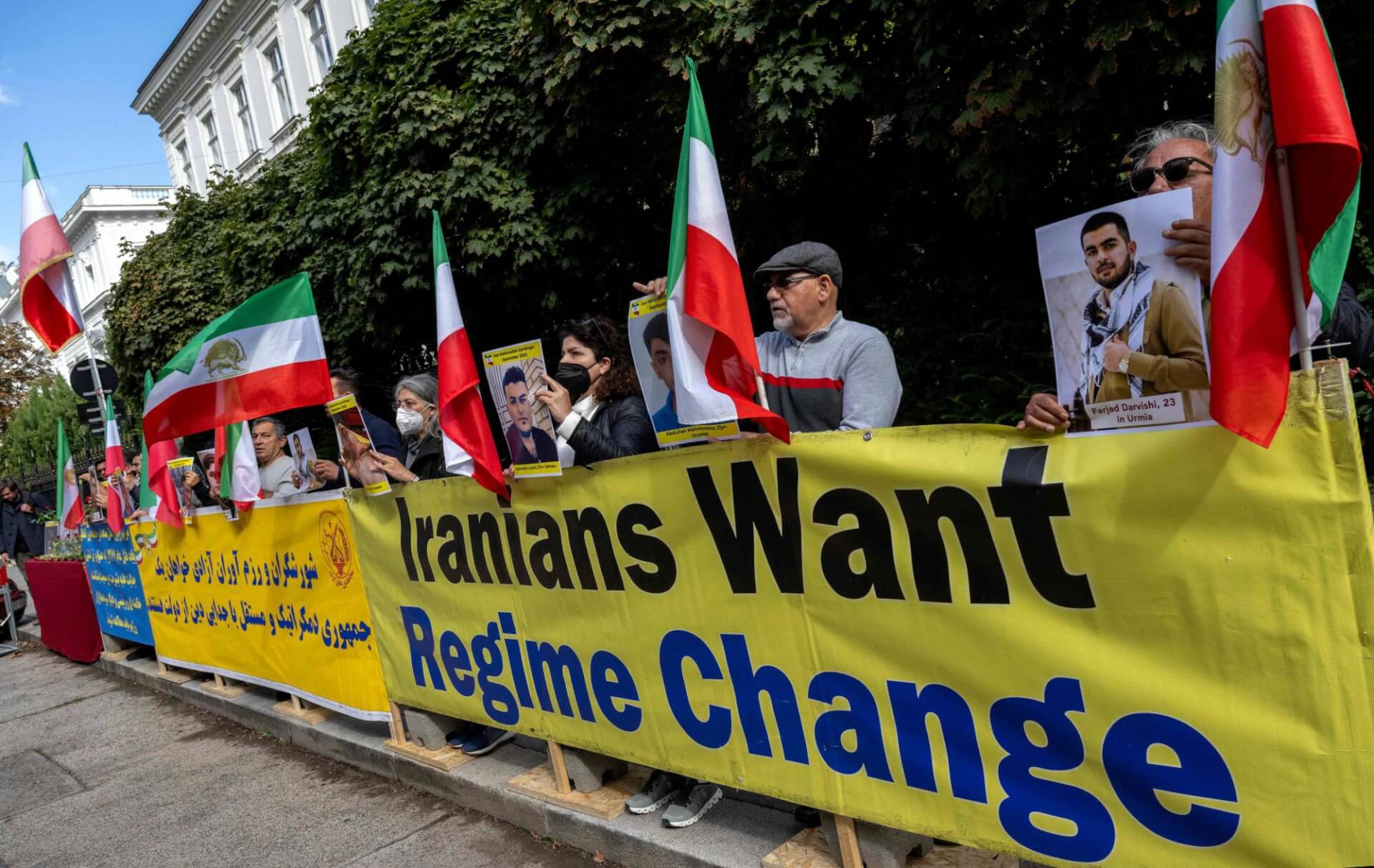Iran on Monday imposed tit-for-tat sanctions on the European Union (EU) and the United Kingdom (UK) for “supporting and promoting terrorism” as Brussels and London plan to announce additional sanctions against Tehran following the execution of two anti-regime protesters.
The Iranian Foreign Ministry sanctioned nine European entities and 23 individuals for deliberately “supporting terrorism and terror groups.” These individuals are responsible for “promoting and inciting terrorism and spreading violence and hatred, which caused unrest, violence, terrorist acts and human rights violation” against Iran, the ministry stated.
It sanctioned the United States (US)-funded Radio Free Europe/Radio Liberty (RFE/RL) media outlet, which is headquartered in Prague, Amsterdam-based Radio Zamaneh and French weekly Charlie Hebdo. The three outlets have been extremely critical of the Iranian regime’s crackdown on protesters.
Tehran also targeted two German companies—Water Engineering Trading GmbH and Gidlemeister Projekta GmbH—for their involvement in “the production of chemical arms” for former Iraqi dictator Saddam Hussein during the Iran-Iraq war in the 1980s.
Furthermore, it sanctioned several military officials, lawmakers, and former politicians, as well as a lawyer from Germany and a French politician.
With respect to the UK, Iran announced sanctions on branches of the Royal Air Force and Royal Navy, and think tanks The British Committee for Iran Freedom and The Tony Blair Institute for Global Change.
The ministry said 13 British individuals, including Minister of State for Immigration Robert Jenrick and MI5 chief Ken McCallum, have been sanctioned.
The ministry said the sanctions involve a ban on visas and on their entry into Iran, as well as confiscating their properties within the country. Since the sanctions only affect the targeted institutions and individuals within Iranian territory, their impact will be minimal.
Iran’s move follows sanctions imposed by the UK and the EU following Tehran’s brutal crackdown on protesters and the execution of two detained individuals. On Monday, EU foreign ministers announced sanctions targeting 20 Iranian individuals and one entity for committing human rights abuses.
EU Foreign Policy chief Josep Borrell said the bloc “will take any action […] to support young women and peaceful demonstrators.”
German Foreign Minister Annalena Baerbock announced a sanctions package against Iranian authorities and institutions, including the Islamic Revolutionary Guard Corps (IRGC). Meanwhile, British Foreign Secretary James Cleverly said the UK would continue to impose sanctions on Iran as long as it continues its “brutal suppression of protesters.”
Last week, the UK and Germany announced separate sanctions on Iran over Iranian security forces’ violence against protesters. Iran summoned the British and German ambassadors to Tehran and condemned their “anti-Iran” policies.
Anti-regime protests erupted across Iran in mid-September in the wake of the death of 22-year-old Kurdish woman Mahsa Amini, who was arrested by Iran’s morality police for not wearing her hijab correctly. Amini was brutally tortured and died while receiving treatment at an intensive care unit of the Kasra hospital in Tehran.
What initially began as protests demanding an end to mandatory hijab laws have gradually morphed into a nationwide movement calling for the end of the theocracy in Iran. Protests have spread rapidly across the nation and galvanised school and university students, including girls, labour unions, and prisoners.
Nationwide demonstrations have continued to spread for almost three months. According to Iran Human Rights (IHR), at least 458 protesters, including 63 children and 29 women, have been killed in clashes with security forces. The IHR notes that protesters have been killed in 26 provinces. The greatest number of deaths have occurred in the Sistan, Baluchistan, and Kurdistan provinces.
Iran has also begun publicly executing arrested protesters. On Thursday, Iran executed a 23-year-old man, Mohsen Shekari, for injuring a paramilitary officer; three days later, authorities publicly hanged another 23-year-old man, Majidreza Rahnavard, on the charge of “enmity against God.”
The IHR has stated that at least nine protesters have been officially sentenced to death and dozens more, including children, face death penalty charges. The organisation has also reported that Mahan Sadrat, 23, is at “imminent risk of execution,” as the judiciary has named him next in line to face capital punishment. The rights group has called on the international community to intervene.
Iran Imposes Retaliatory Sanctions on EU, UK for “Promoting Terrorism”
The Iranian Foreign Ministry sanctioned nine European entities and 23 individuals for deliberately “supporting terrorism and terror groups.”
December 13, 2022

A demonstration in support of Iranian protesters near the Iranian Embassy in Vienna on Monday, 26 September IMAGE SOURCE: AFP
